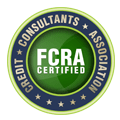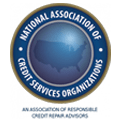Use your tax refund to improve your credit score with this credit restoration advice. If you have made several late payments or missed payments in the past, you may be looking at a low credit score. This can affect how much money you pay in interest on loans, how high your insurance rates are, and how much you pay in rent or mortgage per month.
What is a Tax Refund?

Get Rid of Debt
According to a recent report by Experian, credit scores are 30 percent higher for people with no debt than those with high amounts of credit card debt. Get rid of any credit card balances and loans you have; paying them off can help increase your credit score immediately. If you don’t have a large amount of debt but are looking for other ways to improve your credit, it may be helpful to freeze access to your credit reports—which will keep potential creditors from reviewing them before extending offers or lending money. You can do so by contacting all three bureaus—Experian, Equifax, and TransUnion—and asking them to freeze access until you’re ready for creditors to review again.
Positive Payment History
When you have a positive payment history, creditors consider you a low-risk borrower. Making timely payments on all of your loans and credit cards builds good credit. Try to make each payment at least one day before it’s due, and always pay more than what is required. Making late payments or failing to pay an account in full will cause damage—even if you pay late fees, penalties, and interest payments. Setting up automatic bill paying can help simplify managing bills and ensure on-time payments throughout each month.
Start an Emergency Fund
An emergency fund is one of those things that, as adults, we’re taught to do but often forget once we stop having money taken out of our pay checks. In other words, it’s a lot easier said than done. But starting an emergency fund will help you repair credit and avoid high-interest debt if and when something goes wrong. When setting up an emergency fund, you should aim for at least three months’ worth of expenses so that you can have time to look for another job in case there’s a sudden dip in income. If it takes longer than three months for your funds to run out, then you might want to consider how long it would take for you to find new employment.
Open New Lines of Credit
It’s hard to build a good credit history if you don’t have any credit. It takes time, and that’s why new lines of credit are one of our favourite tips for credit restoration. If you haven’t been able to establish a credit history yet, try applying for an inexpensive secured card and be careful with it. When you keep balances low and payments on time, you show lenders that you can be trusted with larger loans. Once lenders see how responsible you are, they will be more likely to lend bigger amounts in unsecured lines of credit—that is a great way to build a strong track record! You might also consider asking family members or friends who already have credit histories to co-sign for you or take out student loans so that you can get started building credit now. You could even ask about opening a credit card together with someone else who has excellent credit, as long as both people meet income requirements and agree to share responsibility for paying off debts each month. Just make sure not to open too many cards at once; doing so could damage your credit score by increasing risk factors like debt-to-credit ratio (or utilization rate). One last tip: Keep these accounts open! Credit cards help boost scores because they give lenders something recent and concrete to look at when calculating risk factors.




